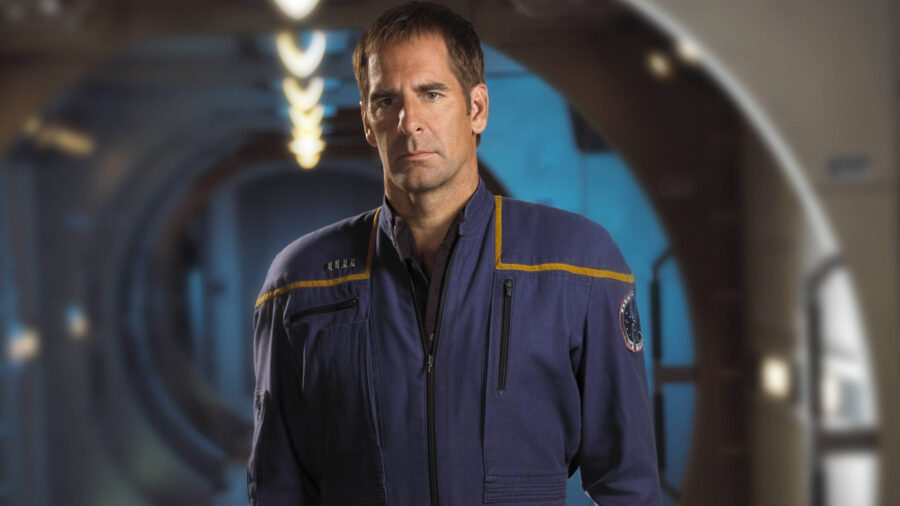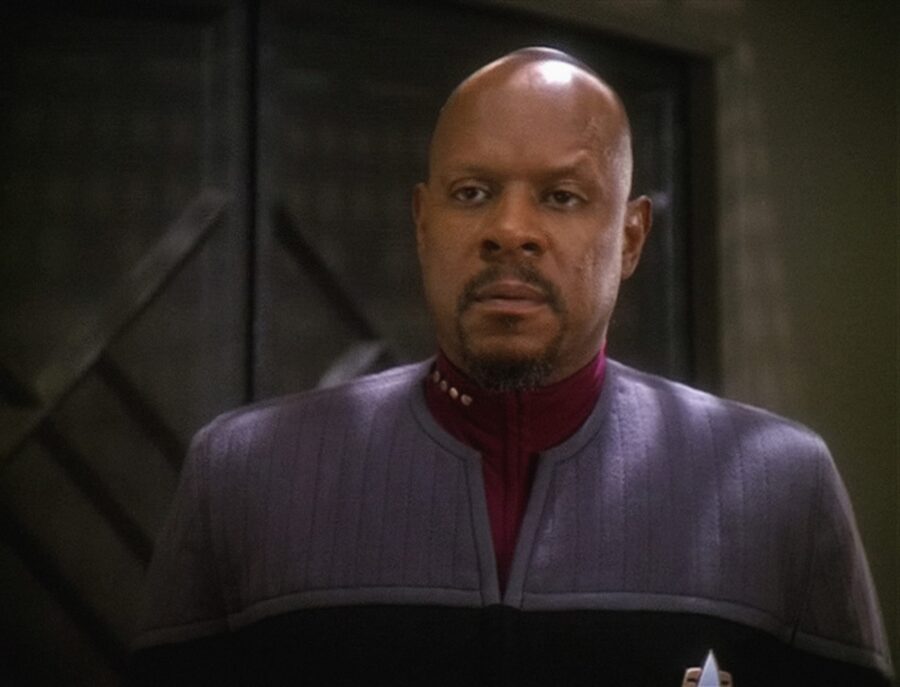Scott Bakula Reveals Where His Star Trek Series Went Wrong
He opens up about how it lost steam.
This article is more than 2 years old

After the prequel series Star Trek: Enterprise was canceled in 2005, it would be 12 years before Star Trek: Discovery gave Trek fans another chance to enjoy a live-action series from the franchise. Every fan, along with every cast and crew member involved with the series, seems to have their own version of why the series didn’t get to end on its own terms. The guy who played Enterprise‘s captain, Scott Bakula, has his own story. According to Bakula, the other Trek shows of the era had an advantage that Enterprise couldn’t match — syndication.
As recalled by Slash Film, Scott Bakula talked to the late Bob Saget on his podcast Bob Saget’s Here For You last year about why Enterprise couldn’t go the distance. “All the other [Star Trek shows]… set up their deals with all the little stations all around America for seven years, and they went and made a TV show for seven years. Which we would have done also if we had been syndicated.” As a network show, Bakula says, Enterprise suffered under a scrutiny the other series didn’t have to deal with. The prequel series premiered on UPN in September 2001, four months after the series finale of Star Trek: Voyager.
Scott Bakula also points out that Enterprise came on UPN at just about the worst time any series could join the still young network. By the time The WB and UPN merged to become The CW, Enterprise had already been canceled. But in the lead-up to the merging, plenty of the political fallout hit Enterprise, including producers Rick Berman and Brannon Braga getting the boot.
At the risk of sounding like we’re trying to correct the guy who was there at the time in the middle of it all, the fact is Scott Bakula isn’t completely accurate when he says the other Trek shows of the era were syndicated. While Star Trek: The Next Generation and Star Trek: Deep Space Nine were syndicated, Star Trek: Voyager was — like Enterprise — a network UPN series. In fact, the 1995 series premiere of Voyager marked the launching of UPN, and it was the only series of UPN’s five inaugural shows to survive the network’s first year on the air.

Not to mention that being syndicated offered its own set of challenges that Scott Bakula and his cast didn’t have to deal with. In the 2018 documentary What We Left Behind about Deep Space Nine, for example, the cast and crew talked about how being syndicated caused unique issues, such as certain stations airing the series at different times every week, or even on different days. Yet Deep Space Nine, like every Trek show of the era save Enterprise, managed to end on its own terms.
While Scott Bakula is no doubt correct that syndication would have helped the show, Enterprise had a lot of things working against it. The very concept of turning back the clock in a franchise that is all about looking forward seems inherently challenging. Yes, Discovery has experienced a lot more success as a prequel, but developments in visual effects makes the show look like a huge leap into the future, even before the series actually did leap into the future. The fact that Bakula’s character is just setting foot into the arenas that future captains like Kirk and Picard have already mastered is a compelling idea on paper, but in practice it can be incredibly frustrating. Hardcore Trek fans see Bakula’s Archer make the kinds of mistakes even a no-named redshirt on Star Trek: The Original Series would steer clear from, and it feels impossible to not scream at the screen.
Regardless of why Enterprise ultimately failed, as always there are hints here and there Scott Bakula could return to the franchise. Just as there was when the series’ cancellation was announced, there is a new petition circulating for an Enterprise revival. We’re not sure any of the actors involved are interested anymore, but who knows? It isn’t like Paramount has been shy about approving new trek projects lately.












